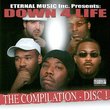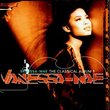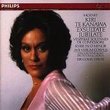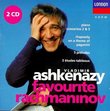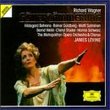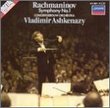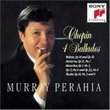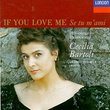| All Artists: Modest Mussorgsky, Pyotr Il'yich Tchaikovsky, Arturo Toscanini, Vladimir Horowitz Title: Tchaikovsky: Concerto No. 1; Mussorgsky: Pictures at an Exhibition Members Wishing: 0 Total Copies: 0 Label: RCA Release Date: 10/9/1992 Genre: Classical Styles: Forms & Genres, Concertos, Suites, Historical Periods, Modern, 20th, & 21st Century, Instruments, Keyboard, Symphonies Number of Discs: 1 SwapaCD Credits: 1 UPC: 090266032129 |
Search - Modest Mussorgsky, Pyotr Il'yich Tchaikovsky, Arturo Toscanini :: Tchaikovsky: Concerto No. 1; Mussorgsky: Pictures at an Exhibition
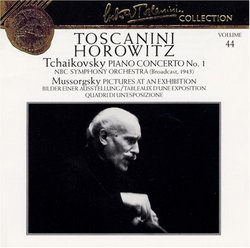 | Modest Mussorgsky, Pyotr Il'yich Tchaikovsky, Arturo Toscanini Tchaikovsky: Concerto No. 1; Mussorgsky: Pictures at an Exhibition Genre: Classical
|
Larger Image |
CD DetailsSimilar CDs
Similarly Requested CDs |
CD ReviewsHorowitz plays Tchaikovsky & Mussorgsky Robert E. Nylund | Ft. Wayne, Indiana United States | 10/28/2003 (5 out of 5 stars) "Here is the "essential" playing of Vladimir Horowitz at his peak in live recordings from concerts in 1943 and 1951. First, there is the historic war bond concert in 1943, when Toscanini conducted the NBC Symphony Orchestra in an all-Tchaikovsky program that included the "Nutrcracker Suite No. 1," the sixth symphony, and his first piano concerto. Joining Toscanini and the NBCSO in the concerto was Horowitz in a performance that exceeds the studio recording of 1941. This is electric, dazzling playing and Toscanini provides superb orchestral backing. The powerful orchestral interlude in the first movement has seldom sounded more dramatic and exciting. There is also great sensitivity in the serene second movement; there is only a brief section where Horowitz and the orchestra get a bit off-kilter. The final movement is absolutely dazzling. No wonder the Carnegie Hall audience stood and cheered.Horowitz did his own arrangement of Mussorgsky's "Pictures at an Exhibition." It is easy to forget that Mussorgsky wrote this as a piano piece and never orchestrated it. This gets down to basics and Horowitz provides an almost symphonic rendition of the original score. All of the familiar movements are played flawlessly and with considerable brilliance. There are some charming moments, too, and at one point the audience seems to snicker as Horowitz captures the essence of a more whimsical section. It all leads to the terrifying "Baba Yaga" and the triumphal "Great Gate of Kiev." This is a very exciting performance, taken from a memorable 1951 Carnegie Hall recital.The sound on these recordings has been digitally reprocessed. Fortunately, RCA Victor did not resort to any clever "gimmicks" and we hear clear high fidelity sound that faithfully captures the performances." A true exhibition pspa | Boston, MA USA | 09/08/2000 (5 out of 5 stars) "Pictures at an Exhibition is of course wildly popular in its orchestral version but, great as Ravel's version is, after listening to the original piano version played by Horowitz you will realize it is even better. This is Horowitz at his absolute peak, playing at times with a demonic intensity that is frightening, a technical perfection that is astonishing (the crescendo and decrescendo as the ox cart approaches and then slowly rumbles off is utterly profound and evocative), not to mention a sense of beauty. The finale is so remarkable it sounds like an entire room of pianos is playing. For 1941 the recording sounds remarkably good, although of course it is not as clear as a modern digital recording." Unforgettable Experience daviddkim | Lawrenceville,NJ, USA | 11/20/1998 (5 out of 5 stars) "If you like Tchaikovsky Piano Concerto#1 and haven't listened to this recording yet, then you should listen to this one. Compared to Van Cliburn's recording, Horowitz's recording is somewhat rigid yet incredibly powerful (only surpassed by his later version with Szell). Similar to Argerich's recording, this recording is also breathtaking (Just listen to the ending finale, you will know what I mean). One drawback of this recording is mono sound (recorded in 1940's). Horowitz's rendition of Pictures at an Exhibition caused fervor controversy because purist thought that Horowitz tampered the music. In response, Horowitz said that he don't give a damn (Ha Ha). He believed he did a good job of amplifying and utilizing piano potential of the music that even Mussorgsky, the composer, was not able to realize. I think Mussorgsky would have been very proud of what Horowitz did."
|

 Track Listings (18) - Disc #1
Track Listings (18) - Disc #1